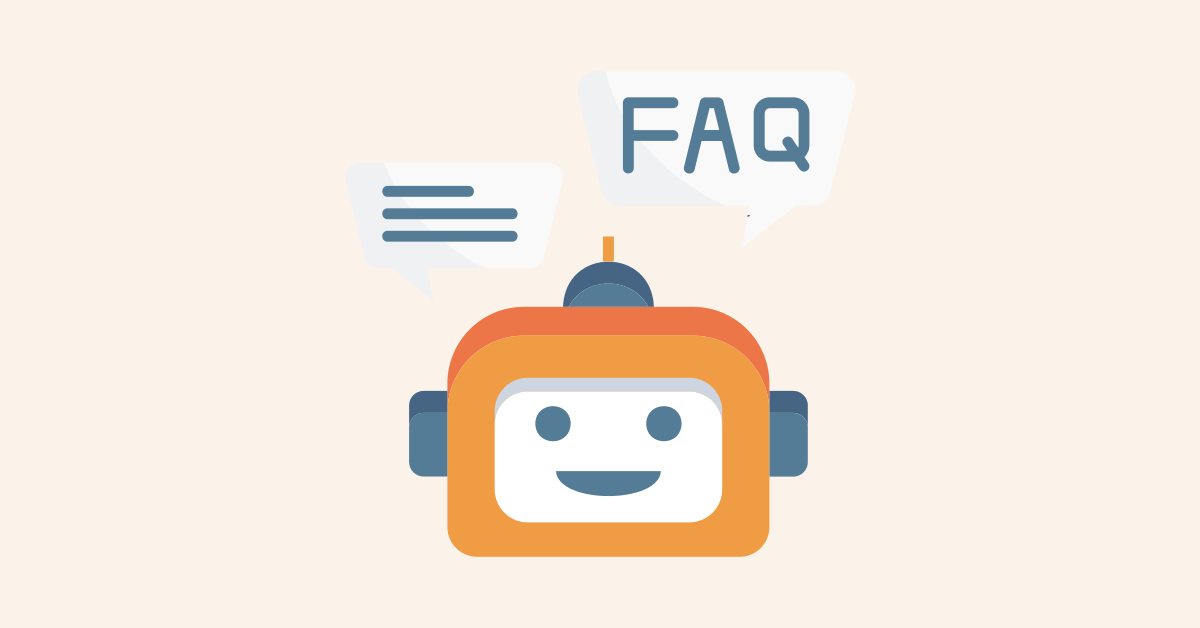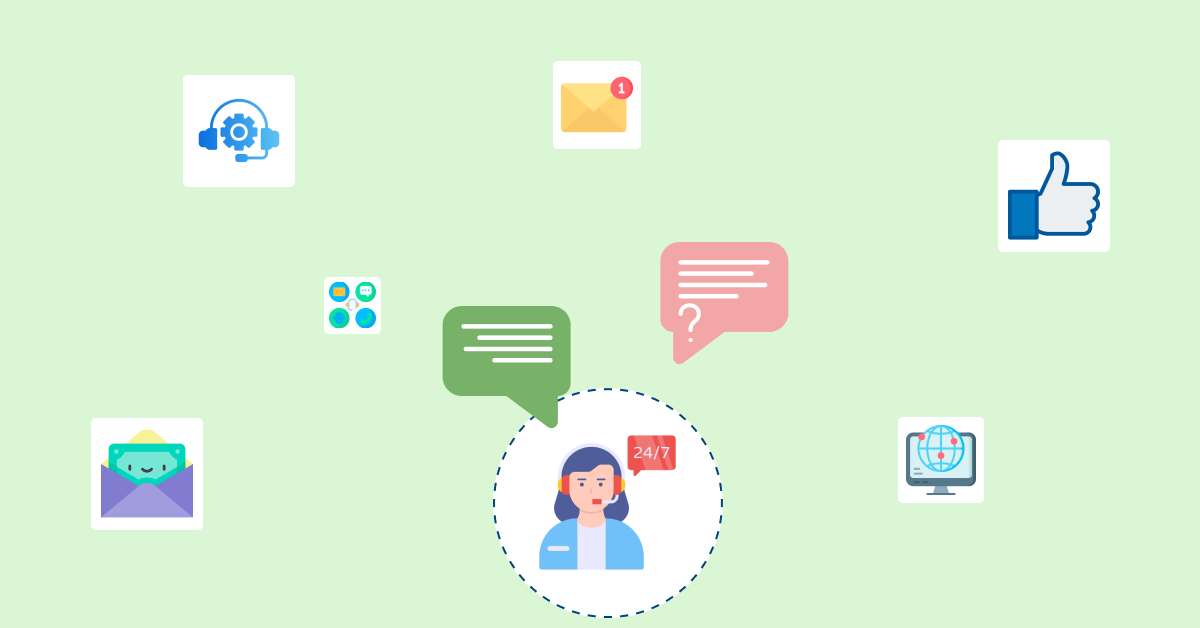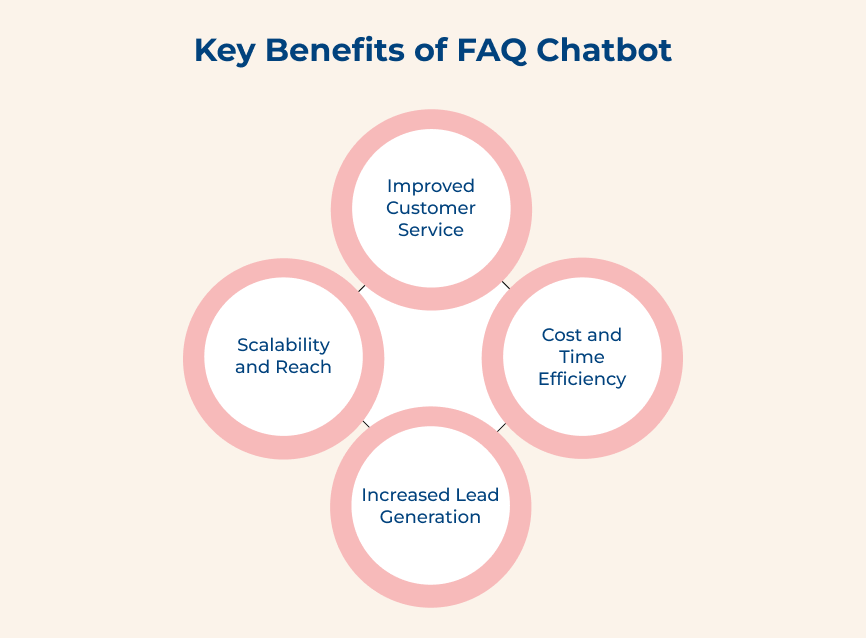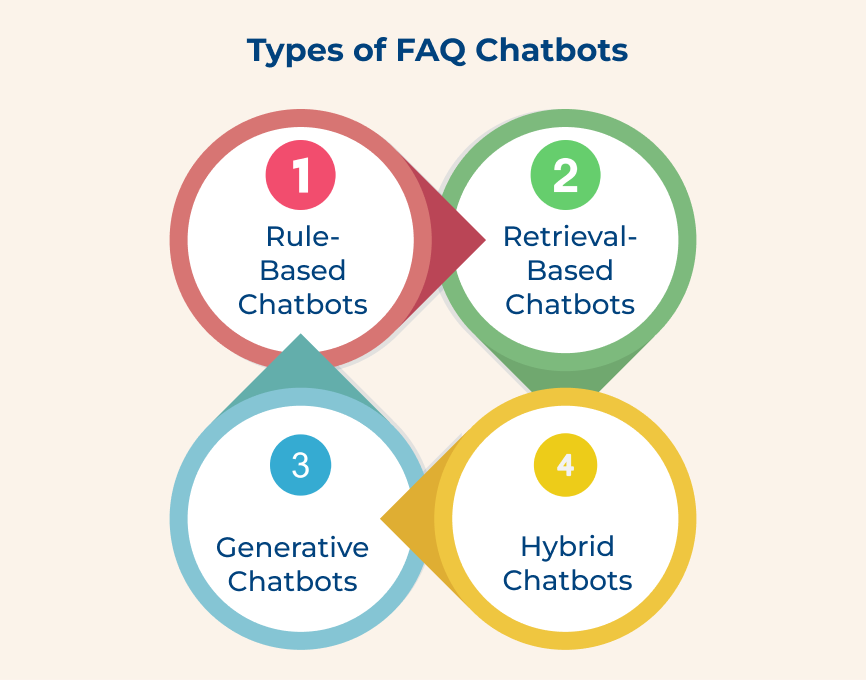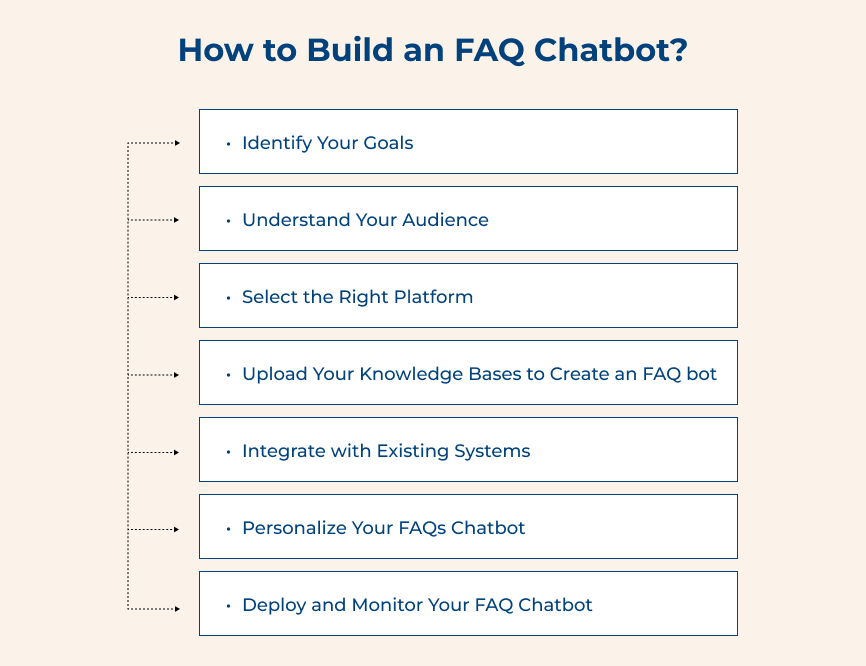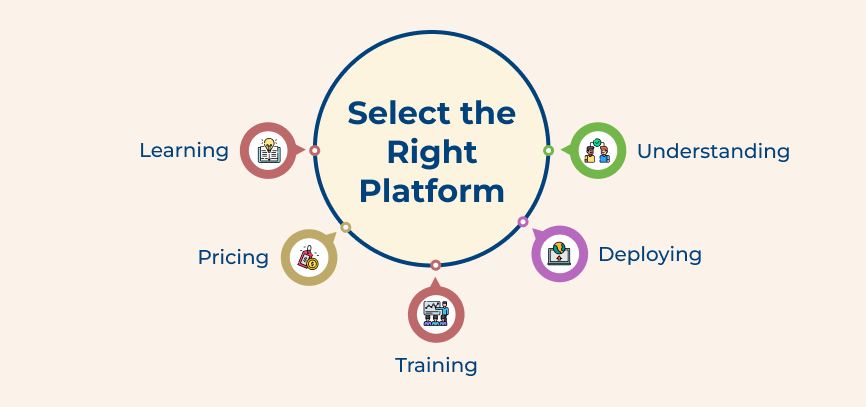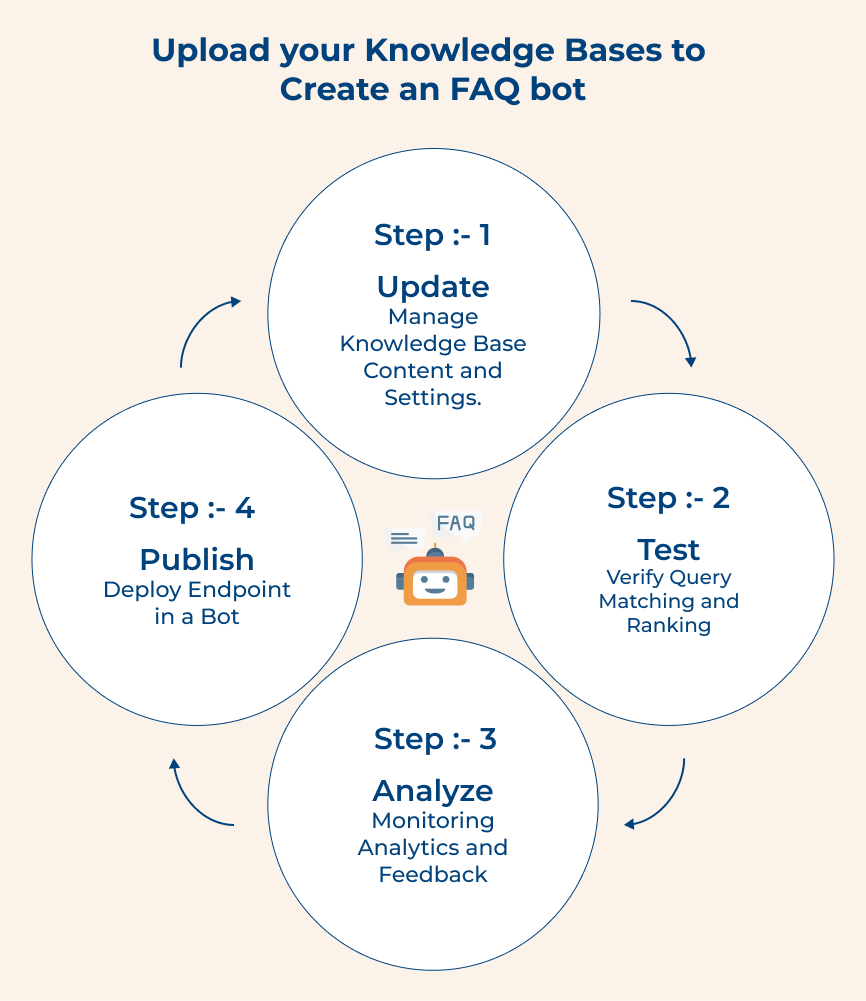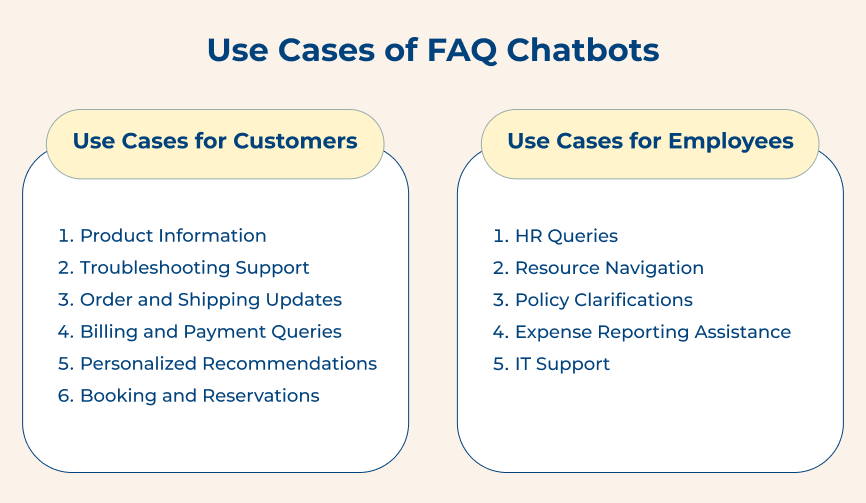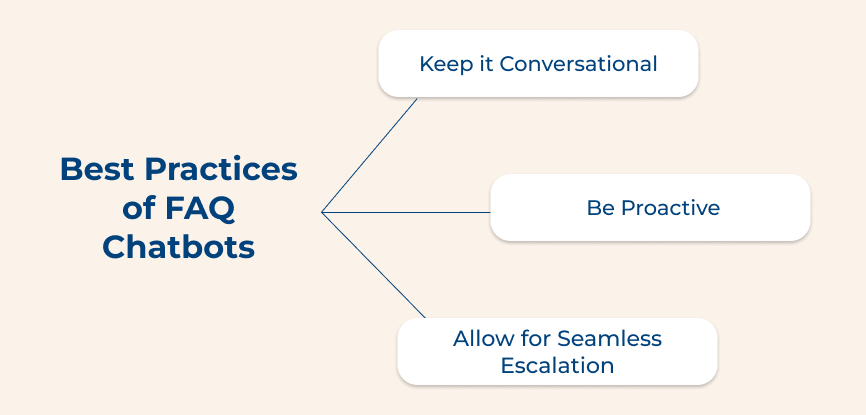A. Use Cases for Customers: Enhancing Customer Experience
Let’s explore some common use cases where a FAQ bot can play a significant role in enhancing customer satisfaction.
1. Product information: Customers often have questions about the features, specifications or usage of a product. A FAQ chatbot platform can provide instant information about the products, saving customers’ time and helping them make informed purchasing decisions.
2. Troubleshooting support: When customers encounter issues with your products or services, they may need immediate assistance. A simple chatbot guides users through troubleshooting steps or provides relevant troubleshooting resources, ensuring a smooth customer experience.
3. Order and shipping updates: Customers frequently want to know the status of their orders or track their shipments. A chatbot can provide real-time updates on order status, shipping details and expected delivery dates, eliminating the need for customers to contact customer support.
4. Billing and payment queries: Handling billing inquiries and payment issues can be time-consuming for customer service representatives. A FAQ bot can swiftly address queries related to invoices, payment methods, overdue payments or refund processes.
5. Personalized recommendations: Analyzing customer preferences and purchase history enables FAQ chatbots to offer personalized product recommendations. The feature not only enhances customer satisfaction but also increases cross-selling and upselling opportunities.
6. Booking and reservations: When it comes to businesses in the hospitality, travel or entertainment industries, a chatbot can handle booking and reservation requests. Customers can easily inquire about availability, make reservations, modify bookings, or cancel reservations.
B. Use Cases for Employees: Streamlining Internal Operations
Let’s explore some common FAQ chatbot use cases in streamlining internal operations.
1. HR queries: Employees often have questions regarding company policies, leave balances, benefits, or payroll. AI FAQ chatbots can provide instant answers to their queries, eliminating the need for employees to contact HR and wait for a response. It improves HR efficiency and allows employees to access information anytime, anywhere.
2. Resource navigation: Navigating through various internal systems or finding specific documents can be time-consuming. Chatbots can assist employees in finding resources such as training materials, forms or company guidelines. Providing direct links or step-by-step instructions enables chatbots to simplify resource navigation and reduce frustration.
3. Policy clarifications: Employees may require clarification on company policies or procedures. Instead of searching through lengthy documents or waiting for an HR representative, employees can ask the chatbot for instant policy explanations. Chatbots can provide easy-to-understand responses, ensuring that employees are informed and compliant.
4. Expense reporting assistance: Chatbots can guide employees through the expense reporting process, including explaining expense categories, approving limits or providing instructions on how to submit receipts. Automating the process saves employees’ time and reduces errors in expense reporting.
5. IT Support: Employees frequently encounter technical issues or require assistance with software and hardware. Chatbots can offer troubleshooting guidance, provide self-help resources or initiate a ticket for IT support. It reduces the IT department workload, resolves minor issues promptly and ensures employees can continue working without disruptions.
Examples of FAQ chatbots
Join us as we dive into the real-world examples of FAQ chatbots and uncover the ways they are reshaping customer service today.
